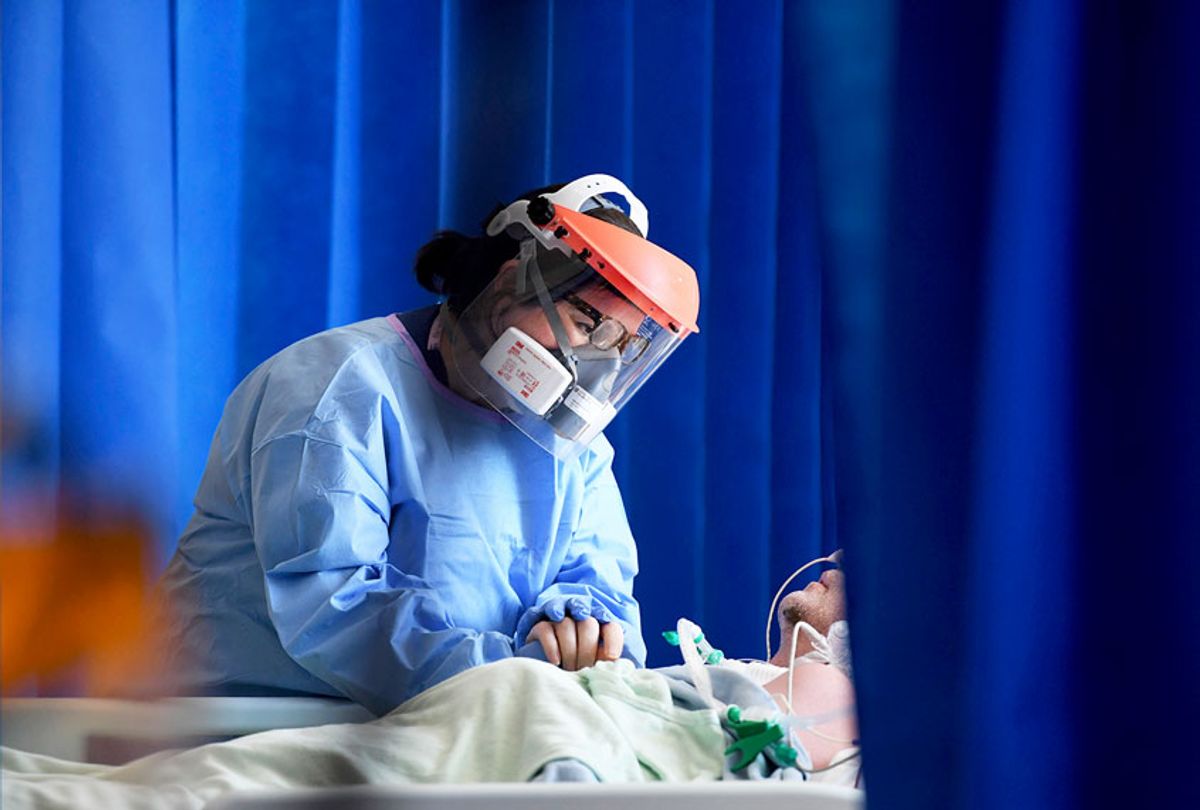It has been one year, this week, since the coronavirus pandemic officially started. The World Health Organization declared a pandemic on March 11, 2020. More than 525,000 American deaths have been lost. It has happened so fast — in the blink of an eye. President Biden and Vice President Harris held a moving candlelight service on Feb. 22 when we passed the 500,000 mark. Since then, the march has carried on. The numbers keep increasing by the day. As the one-year anniversary approaches this week, we need to pause, reflect and grieve the unimaginable losses we have endured.
The number of American deaths from COVID-19 is nearly equivalent to the total number of U.S. deaths in World War II, the Korean War and Vietnam combined. This is an incredibly sad and tragic fact. We must now place the coronavirus pandemic in the same category as these defining events in our country's history. We cannot simply turn our heads. We cannot say it was "just the flu." Americans have died at the hands of a disease that is smarter and tougher than our resolve. They have died because our country could not — or would not — save them. Our lack of preparedness, our incompetence and our arrogance have had irreparable consequences.
We are still in the midst of this once-in-a-century public health calamity that has left us full of tears and pain. Tears for the loss of loved ones. Pain for our hesitancy to acknowledge our sorrow — nearly half of all Americans still believe the pandemic is a hoax or is overblown. Pain because so many families must endure their unbearable sadness alone without the full empathy and support of our country.
So many of our fellow citizens cannot grieve their losses because those around them are in denial or, worse yet, believe the pandemic is a political ploy rather than a public health emergency. The coronavirus has been politicized from the beginning. If you are a Republican, you are likely to be a pandemic denier, may refuse to engage in safety measures such as mask wearing and social distancing, and have pushed to reopen the economy at any cost. If you are a Democrat, you believe the pandemic is real and safety health measures are vital — as is massive financial relief for the American people. Want proof that this is politics? Look at the vote in the Senate on the Biden administration's relief bill — 50-49, right down party lines.
Individuals who have lost loved ones have been caught in the middle of these warring political factions. They have been unable to speak out about their losses openly, easily and genuinely. Instead, they have held their grief inside and handled their despair privately. Their thoughts and feelings have been buried in the sand. It is reminiscent of Vietnam in the 1960s and 1970s, when returning military personnel could not express their feelings publicly because the country was so angrily divided over the war. Those veterans had to grapple with their psychological and medical pain in silence and anonymity.
Our country has begun to grieve the horrific repercussions of this pandemic. Joe Biden is providing national leadership as we move ahead. He must step up to the plate — after all, we look to our president to be a paternal figure who can guide us emotionally at times of crisis and overwhelming anguish.
Now it is time for the rest of us to catch up. We need to stop politicizing this pandemic. The coronavirus is not Democratic or Republican. The factual, scientific truth is that 525,000 Americans have died from a virus that was not contained and defeated by our government. COVID-19 has surged, spiked and spread for the past year. We did not respond with a grand national strategy, for a variety of mostly political reasons. So the virus has kicked our collective butts as the incomprehensible death count has steadily mounted.
Thankfully, vaccines have arrived. We are now hopeful that we can defeat this pandemic with the widespread use of newly developed vaccines that are medical miracles in themselves. Perhaps the politicization of the pandemic will melt away as we see the light at the end of the tunnel.
But as our spirits begin to rise again, it is critical that we not forget about our 525,000 lost neighbors. We must begin to talk about them with gratitude and honor. They have perished in order to save the rest of us. Many of them died alone, without a loved one by their side. Funerals have been curtailed. Each life that has ended was that of an extraordinary and courageous person. They were living, breathing, loving people who have left behind grieving families and a stunned, ambivalent and exhausted country.
Now our country must do its part. Let us continue to have candlelight vigils for these brave Americans. Let us establish a federal holiday in memory of their courage and ultimate sacrifice. And let our political differences disappear so that unity can triumph over division as we share in our national grief.
This one-year anniversary is so sad. Let us mark it with a concerted effort to pause, reflect and remember. In doing so, we will open our arms to the grief of the moment — and our slow process of national healing will take a giant leap forward.

Shares